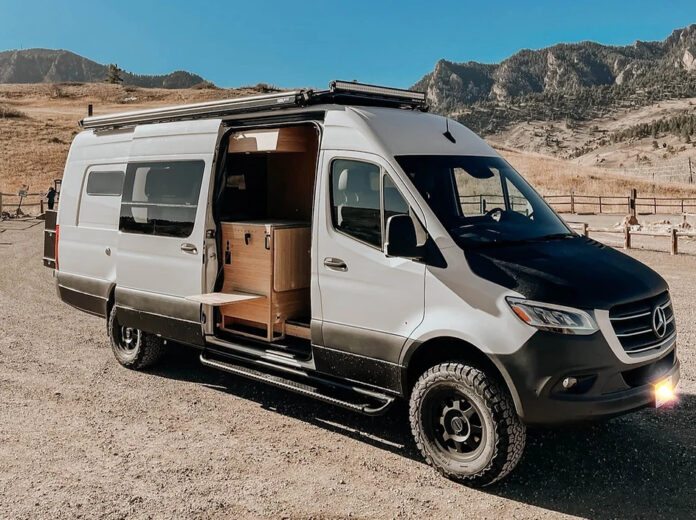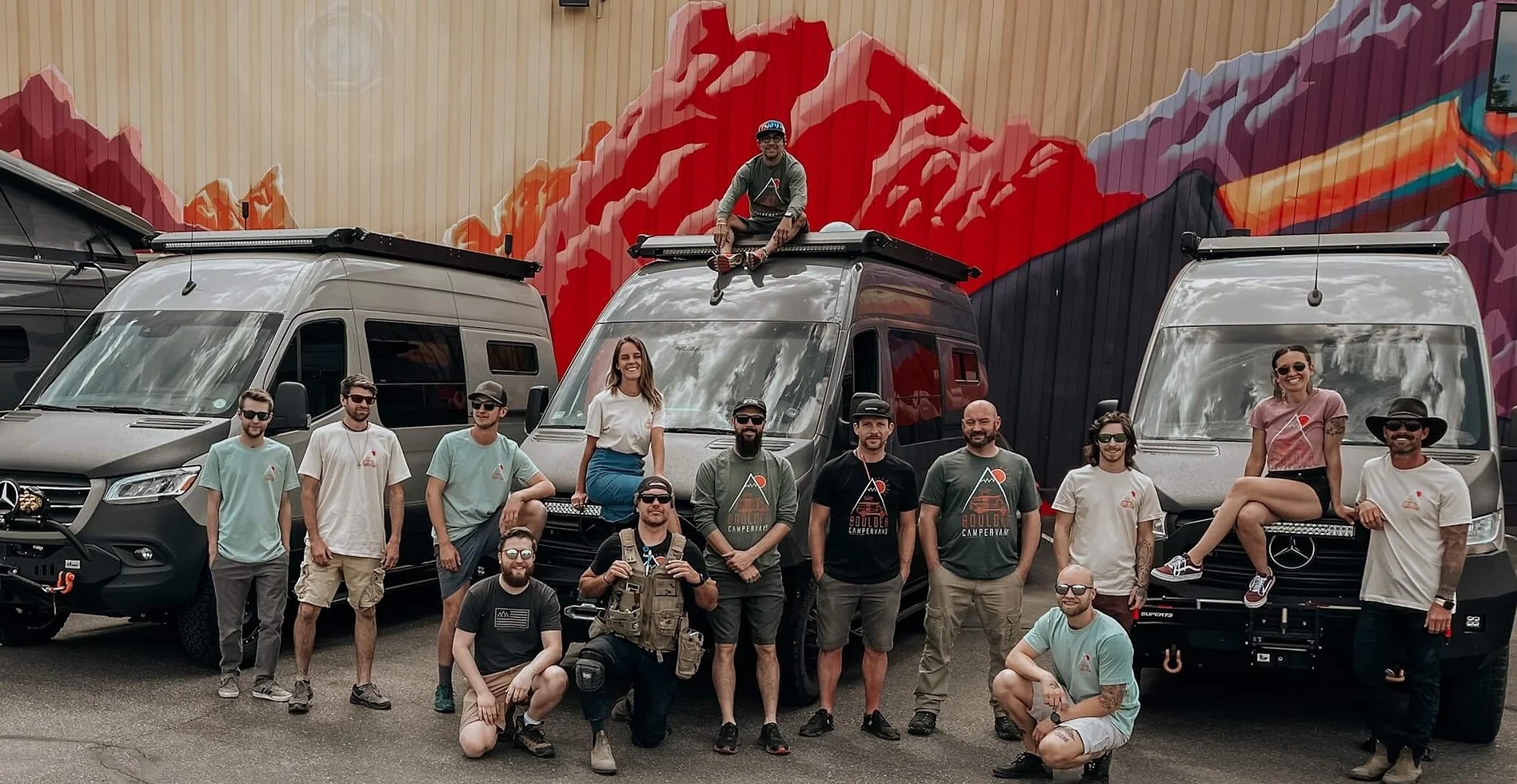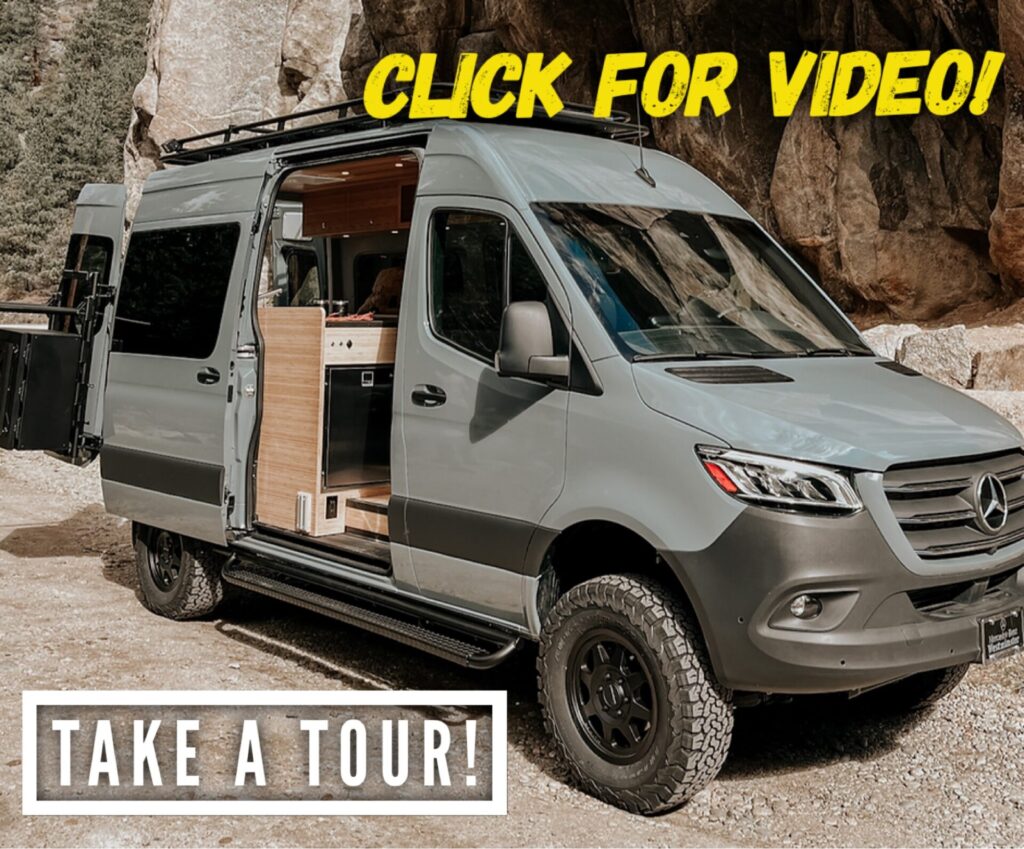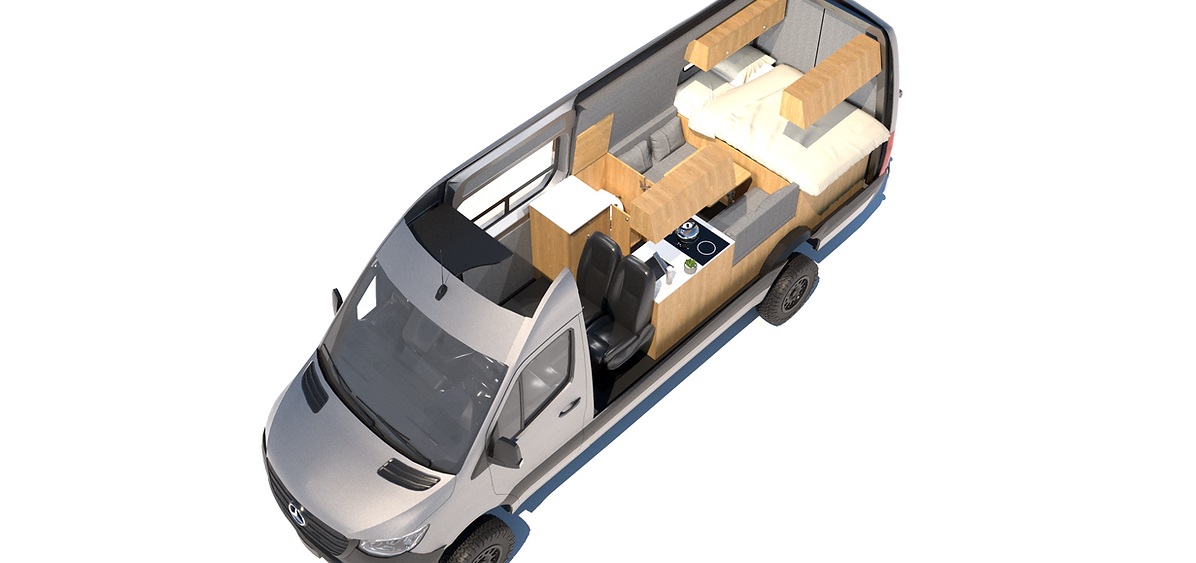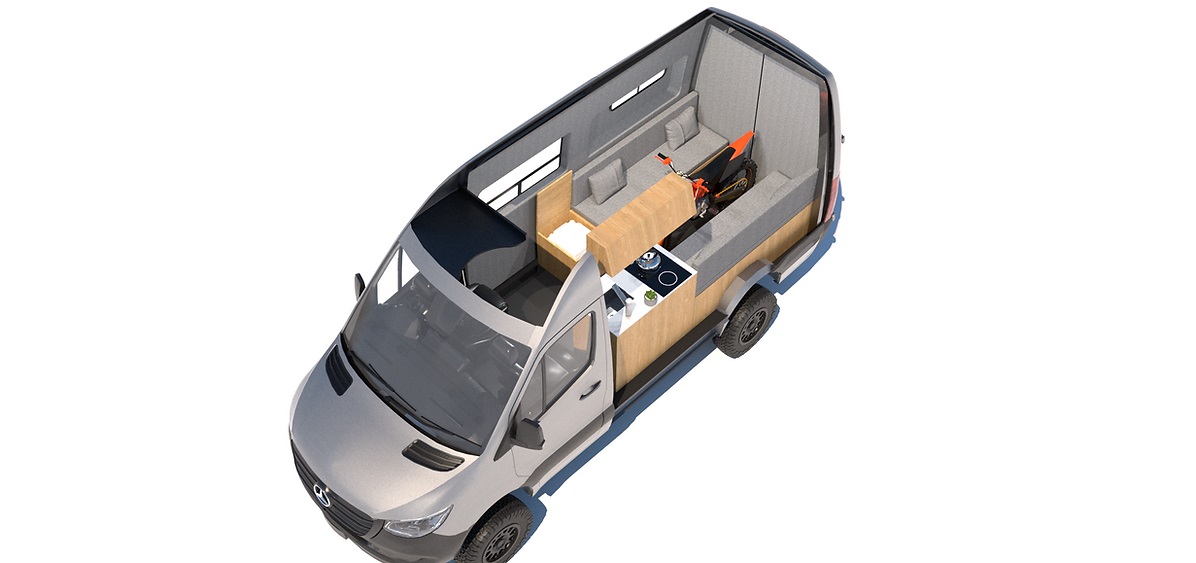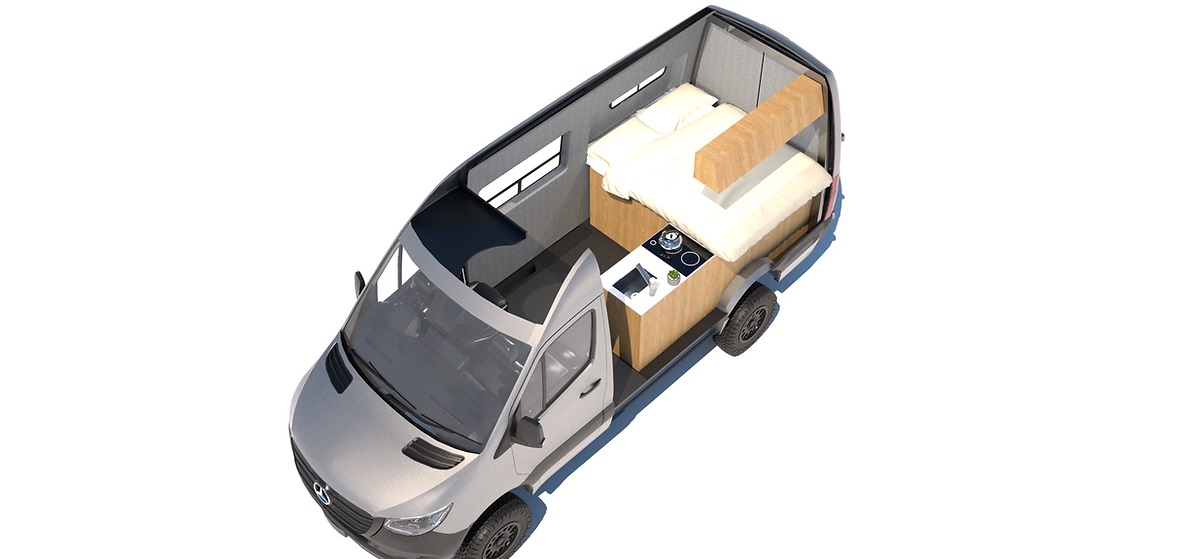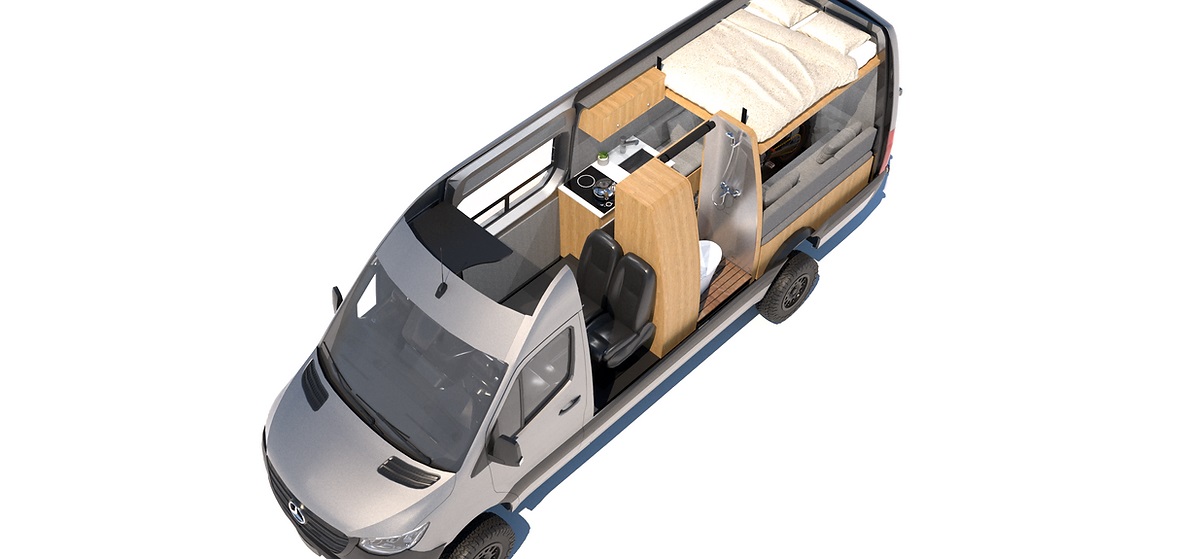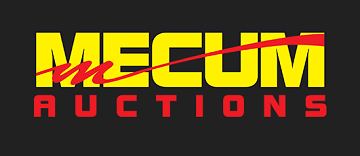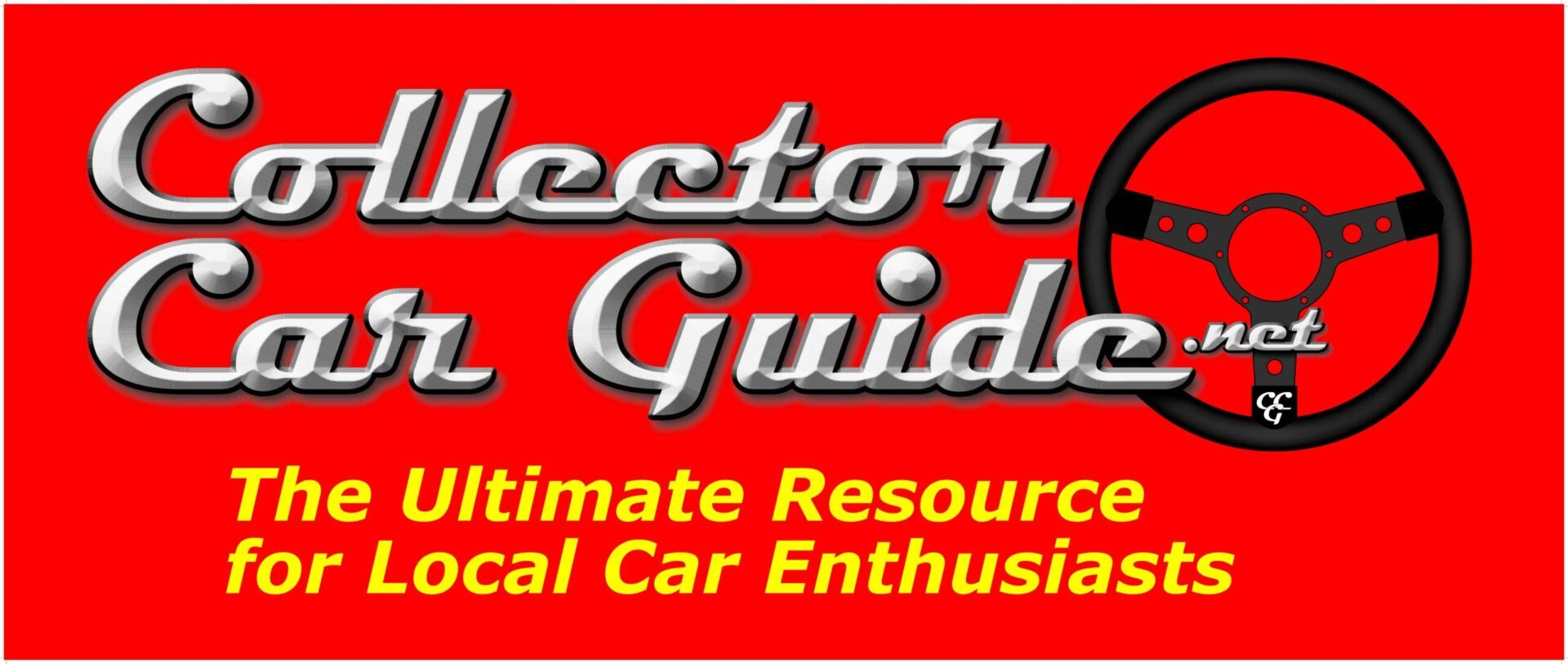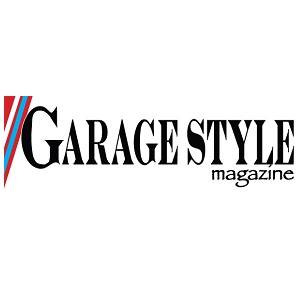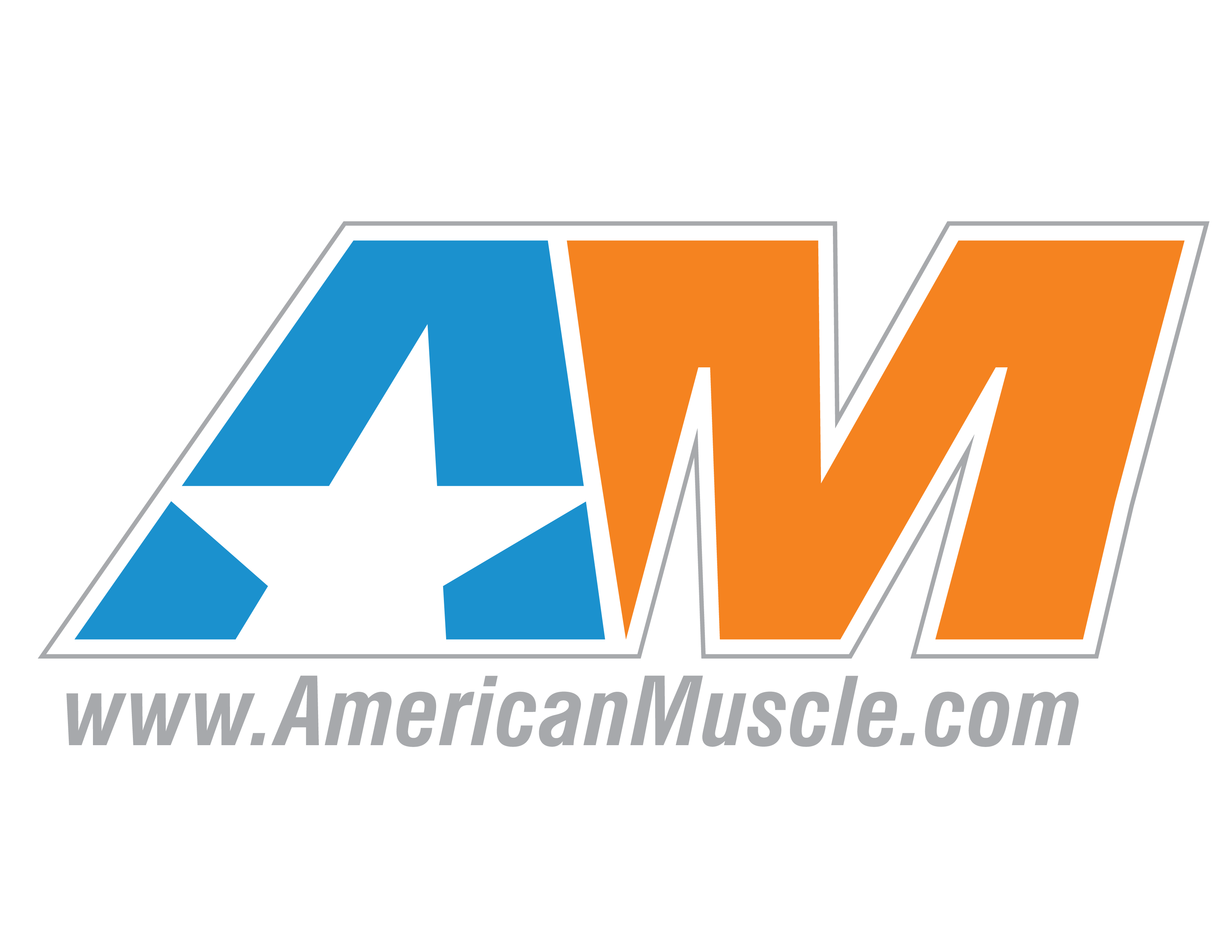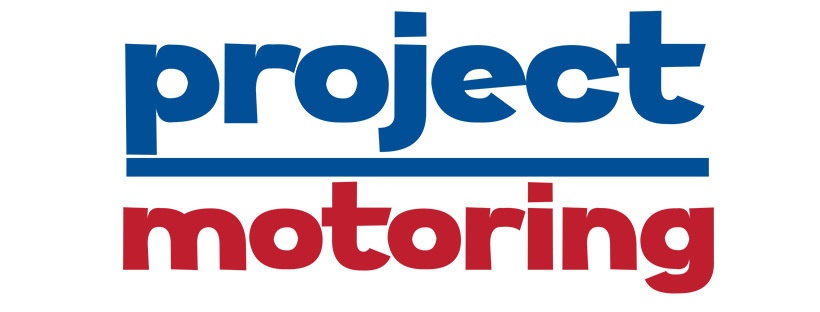Unwavering creativity, innovation, and artistry are at the forefront of every build they conceive. Their team uses leading-edge technology to construct a durable and truly unique vehicle. They work in a highly competitive field, constantly investing in technology and research to make sure they stay ahead of the curve.
Brian Crider joins us from Boulder Camper Vans. They are part of a team of artists, adventurers, innovators, and perfectionists whose passion is to create one-of-a-kind camper vans.
Spotlight
Brian Crider - Founder for Boulder Camper Vans
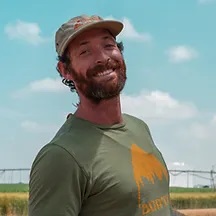
Way before Boulder Campervans opened in 2016, Brian Crider was just a kid discovering his passion for automobiles, woodworking, and tinkering around. Brian grew up building all sorts of designs in his woodshop and outfitting cars with newer parts, where he furthered his love for craftsmanship and the auto industry. At 16 he got his very own van, thus beginning his deep passion for camper vans, custom van builds, and van life.
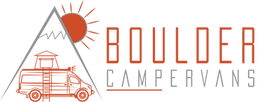
Contact: Brian Crider at Visit Online!![]()
![]()
![]()
Notes
- The who/what/where/when/how of Boulder Camper Vans. As a co-founder, let’s dig into your history Brian!
- Let’s talk about the Build Process – what does that entail?
- Is it BYOV (Bring your own Van?)
- Explain the “EV upgrades” or ideas especially for off-grid living.
- We had Joey Jordan IV on a previous episode, and he talked about living out of a Toyota Hi-Ace he imported from Japan and took on a 35k mile journey from LA to Patagonia – How would you prep your vans for a journey like that? Recommendations? Suspension/Tire mods, etc?
- Tips/Tricks to living in your van long term?
- Climate – how are they prepped for extreme hot/cold conditions
- Sleeping arrangements? How many people, how does it work?
- Is there a market for used Vans? Do you act as a reseller or broker? What does the market look like?
- What’s next for Boulder Camp Vans?
and much, much more!
Transcript
[00:00:00] Hello and welcome to the Gran Touring Motor Sports Podcast Break Fix, where we’re always fixing to break into something motorsports related.
Unwavering creativity, innovation, and the artistry are at the forefront of every build they conceive. Their team uses leading edge technology to construct a durable and truly unique vehicle. They work in a highly competitive field, constantly investing in technology and research to make sure that they stay ahead of the curve.
And tonight Brian Kreider joins us from Boulder Camper Vans, and he’s part of a team of artists adventurers, innovators and perfectionists whose passion is to create a one of a kind camper van for you. So with that, let’s welcome Brian to break fix. Hello. Hello. Thanks for having me and my co-host Tonight is the one and only mountain man.
Dan, glad to have you here. Like all good break fix stories. Everybody’s got a superhero origin, but yours is a special one because it’s. Kind of rare that we have folks who originated from the D M V, that’s the DC, [00:01:00] Maryland, Virginia area On this show, let’s kind of dig into your past. Let’s talk about the who, what, when and where of you, Brian, and how you founded Boulder Camper Vans.
Yeah, what a story. You know, I grew up adventuring the blood. As a young kid, I was out in the yard or out in the woods climbing trees and climbing mountains and going skiing and just as much outdoors as I possibly could have. I was trying to grab as much as I possibly could leading into the camper van businesses.
I’ve always been in automobiles and modifying automobiles, and grew up in the East coast. It was more of like a pimp my ride kind of vibe where you’re doing the subwoofers and the exhaust. You know, I could be driving at night and look behind me and know what kind of headlights of that vehicle were much like.
I’m sure that you guys could, so you understand where I’m coming from. That’s the beltway game. Yeah, exactly. So, ’cause camper vans really weren’t a thing back when I was growing up, but I. Of my first vehicles that I had was a regular E three [00:02:00] 50 van and decked it out in the most basic way where it just had a little bed in the back, a little cooler and a little hangout zone for me and my friends.
Whenever we would go camping, they’d be pitching their tents and I would just have a little comfortable space to sleep in in the camper van. So, Really, I started from modifying vehicles to modifying vehicles that could get me deep into the woods. Have some of those amenities that I felt comfortable as if I were at home.
Nice comfort above bed to sleep on a little heater that was in there. Next thing you know, I’m helping one of my good friends back in Maryland where I grew up in Annapolis, helping him kind of do the same thing for his van. So that’s really where the inception started. You’d started to modify your own van and then one of your.
Friends, had you help him modify his, was that one of the first times you’re like, Hey, this is something that people would be interested in? Or did you think prior to that that it was something people would be interested in? Fan life word didn’t even exist, so I was one of the first people to have the van in the East coast.
I feel like, I mean, there [00:03:00] wasn’t, I didn’t know anybody and I had a big, big friend group growing up on the East coast. But all of my friends and the people I would hang out with knew that I was the person to come to if you wanted to do something to your car. And as we all know, putting the neon lights underneath the subwoofers in the back, painting little pieces of the dash and putting a head unit in and doing all these things, that was our era.
You know, I’m 39 years old now. I just think back that was where it was at the Fast and the Furious. You know what I mean? That was the time. And so when I moved to Colorado back in 2013, 14, I realized that. Hey, fast and Furious isn’t out here. The camper van is the Ferrari of Colorado. Something that I quickly recognized that I could feel comfortable modifying these vehicles and starting a business out here that would be successful.
But I think when my friend first asked me, when I built my first camper van and he asked me to help him, it was definitely a spark, but I had no idea on the East Coast because. It just wasn’t a thing. Yeah. Back when I was growing up, we’re talking about, you know, [00:04:00] mid nineties, late nineties, early two thousands when I was doing this, and it just gave me the confidence to be able to help people do the type of work that I’m doing today.
But I wouldn’t say that anything to do with camper vans had sparked when I was really, really younger. It was more just the confidence of helping people modify their vehicles, which is in the general sense of what I’m doing now, no matter what vehicle it is. People come to me because they put the trust and the confidence in me that I’m gonna be able to make their dreams come true.
You were just talking about getting closer to 40, being a petrolhead of a certain age as we all are here and coming from the east coast. I remember in the late eighties, early nineties that. It Camper van, if that was even a term in those times, was the VW van again, or the early Euro vans, the Westie, the West Flia.
Those are the kinds of vans that we looked up to. And if you had a unicorn, you could get the synchro with a manual transmission, right? Ooh, ah. You know, that kinda deal. But they were super rare, like nobody really had them. I only know of [00:05:00] like a handful of people that had them. So I’m wondering, is that what you’ve been striving to bring back or bring to the masses?
Is those Van Agans that West Flia, the things that we craved as kids that was the pinnacle of these camper vans? I’ve spent time in those. I’ve rented those. I’ve been around those. And you know, just to kind of be blunt, my only issue with that was. You couldn’t stand up in those. I think the idea of those were that you could drive out into the woods and sleep in a pop top and have a nice little couch in the back, have a little bit of running water.
So I think that was really the foundation that brought these more sophisticated, more tech forward style of van that I build today. So when you were growing up, did any of the. Older Dodge or Chevy or Ford, like conversion vans that had the seats that could turn around, had a little table and like little 13 inch TV in ’em.
Were any of those like inspirations for getting to where you’re at now? Totally. The Ford E three 50 that I had, it was four wheel drive. I had a four inch lift on it. [00:06:00] It was, I. Super capable of getting me out there. And you know, I definitely came across a bunch of different, more RV manufactured vehicles that were, in my opinion, put together poorly.
And I traveled with my grandparents when I was younger in their 40 foot rv, and I’m sitting in a van right now that doesn’t have a generator, that doesn’t have a black tank, more of a all electric vehicle when it comes to running the ac. Running the water pump, you don’t gotta be plugged into campsite.
It was a stepping stone for most, and I just think that it was a great iteration into the camping world as far as being in a van. But compared to where we are fast forwarding, like with most vehicles that we look at today, it pales in comparison to where the technology is. And because when I think about the ultimate vehicle, and I owe homage to the West Felia, but I wanna be off.
Right. I want to be for season, I don’t want my water to be freezing. I wanna have a big enough battery system to be out there [00:07:00] for weeks on end. I wanna have solar panels and, and they didn’t have those kind of concepts back when they created that, right? It was just, Hey, here’s a vehicle that you can sleep in and.
Have a foot pump that shoots water out of the faucet, but it still wasn’t there. And so like me, and there’s a couple other companies out there that have really kind of pushed it as far as electronics go, but a functional standpoint, stuff not rattling, going down the road, not having to have a gasoline generator running off the back and annoying everybody else in the campground.
So, Definitely homage to the West Felia, but at this point, like comparing a Mazda Miata versus a Porsche nine 11 turbo. You know what I mean? Yeah. So much different world now, and I’m excited with all of the technology that has come out today because until I. 10 years ago, there was never a battery that could keep you off grid for, you know, a week or two.
There wasn’t the solar capacity that you could put on top of a camper van that could, you know, recharge your [00:08:00] batteries the way that you wanted to. So there is finally now a foundation to where you can actually really get out there for the real people that like to travel and be on the road for extended periods of time.
Everything exists in order to do that. You know, I think all of this experience that I went through from the pit, my ride kind of exhaust, subwoofers, rims, tires, suspensions, all this really led up to the confidence of me being able to start my own company and being able to modify a brand new, at the time, 2016 Sprinter and cutting holes in the side of it, and so on and so forth.
Yeah, so I, I think all of it played an inspiration of where I’m at today, the love that I have for taking something like a Ford or a Dodge or a Mercedes from this stock. Not very exciting vehicle to turning it into something that is much more capable of. Whatever it is that you’re trying to do, but when you make modifications to it, it makes it unique to the person that you’re working for or unique to who you [00:09:00] are.
All of it was an inspiration. My life ever since I first started driving when I was 16, my first job again was for, you know, an auto manufacturer that kind of made modifications to vehicles and that’s always been a love of mine. So, There’s not one specific point in my life where I can say, oh, that was the inspiration, but it’s really been a multiple event that’s led me to where I’m at today, and it gave me the confidence to be one of the top five builders in the country.
You mentioned in the early days, you know, there’s a lot of D I y, a lot of figuring it out. Probably a lot of trial and error, but then you hooked up with this automotive manufacturer. Did you find yourself becoming a fabricator? Did you go formally through training or schooling to do this kind of stuff, or did you sort of just figure it out over time?
You know, I’ve always been torn between schooling and street smarts. The short answer is I figured it out on my own. I. Laying down beads of welding or hooking up electrical systems and learning my lessons on where I went wrong. So I’m really a self-taught person that was able [00:10:00] to quickly learn from my mistakes and become a really well-versed jack of all trades, where I know how to be a fine woodworker.
I know how to be a master electrician, um, as they would say a master of none, but really good at just about everything. I really pride myself on the kind of knowledge that I’ve taken in over the course that I’ve been ever since I was young of just being able to do what I do. Never went to a formal school.
I went to a community college for a while. Did a year or two at University of Maryland, but it wasn’t for me. I just wanted to kind of be out. In the thick of it, just learning on the streets and actually putting down my foot to what I specifically wanted to learn. And for me, school was almost a diversion, kind of just being where I wanted to be already.
You mentioned growing up in Annapolis, which is the capital of our fine state of Maryland. So I gotta ask a very Maryland centric question. What high school did you go to? I went to Srna Park High School. There you go. There you go. Yeah. Yep. Srna Park. Grew up in [00:11:00] Annapolis for a long time. That’s where all my family’s at, and I spent 28 years in Maryland and never, ever left.
So that’s where a lot of my roots have been put down. Being a van guy, what’s the best van in your opinion? Well, you know, there’s really only three vans on the market that could really, in my opinion, ever be considered. It’s the. Mercedes Sprinter, the Ford Transit and the Dodge Pro Master, and really the Dodge Pro Master, I don’t even offer to build on because it just strictly doesn’t have four wheel drive or all wheel drive.
So it’s like building on a foundation that just can’t handle the adventure that. I seek and our clients seek. So really it narrows it down to two, which is the Mercedes Sprinter and the Ford Transit because both of these vehicles, just like a home, have a very solid foundation in, in terms of solid foundation, I mean a really good chassis, but a chassis that offers the ability to be able to get you out there into those dispersed campgrounds [00:12:00] to get deep to where nobody’s at, because.
I don’t want to be at the KOAs. I’m not a blacktop type of guy, so my ultimate favorite and what I’m in now and what I had a choice to choose from is the Mercedes Sprinter. When I think about the vehicle that I chose, I think about ground clearance. I think about aftermarket accessibility. I think about all these different factors.
That go into getting ready to spend 50 to a hundred thousand dollars on converting this vehicle. And in my opinion, German engineering has been a really solid foundation to build on. And so the Mercedes-Benz Sprinter is definitely my favorite. My guys that I work with, favorite and a fan favorite of most of the clients that we get.
This is actually a really great segue into talking about your build process and what that entails for folks that are interested in getting into quote unquote camper Van Life or Van Life. You know, we all know that this exploded during c I d, you know, you couldn’t get. An RV or an Airstream or anything.
It’s very, very difficult and the [00:13:00] prices went through the roof. Looking at what you guys do at Boulder Camper Vans, is this what I like to call B Y O V, which is bring your own van, in this case, a sprinter, a pro master, or so on down the line. How does it all work? So, yeah, it’s definitely a B Y O V for sure.
Since the beginning of our company, we’ve never supplied the van. There’s so many different options out there when it comes to just the two chassis that I’m really talking about, which is the Ford and the Mercedes. There’s low roof, medium roof. High roof in both versions of the Mercedes Sprinter and the Ford Transit.
There’s the 1 44, which is the shortest Mercedes, the one 70 and the one 70 extended. Then there’s 15 different colors and there’s leather seats versus having navigation and different safety features. So it really doesn’t make sense for us as a company to have 10 random bands sitting on the lot that we’re not gonna know if it fits the person’s build.
So do you guys have any like preferences for like gas or diesel chassis or two-wheel or all-wheel [00:14:00] drive chassis, or is it whatever the customer decides and brings to you? Out of all the vans that I’ve ever done, I’ve only built on one two-wheel drive vehicle. It just doesn’t make any sense to me, especially being out in the state of Colorado to build a van.
On a two-wheel drive, you’re very limited on what you can do when you’ve got two-wheel drive. Got a lot of clients that want to go skiing, they want to go deep offroading, and between the ground clearance of a two-wheel drive vehicle and the drivetrain, it just doesn’t make sense. So I stay super hyperfocused and 99% of our stuff is four-wheel drive or all wheel drive and the Mercedes Sprinter and the Ford Transit just because.
Our company believes in building on a solid foundation, and really that comes from the drive train of the vehicle, and the Ford Transit and the Mercedes sprinters are the only ones that offer all-wheel drive or full wheel drive. I think that our clients have a sense for that, and that’s what we’re geared towards.
Yes, I would build it on a two-wheel [00:15:00] drive vehicle. I’ve done it very rarely. I wouldn’t turn somebody away, but I think that after the initial conversation, they understand the importance of having all-wheel drive or four-wheel drive, especially being out here in the state of Colorado. Say one of our listeners here’s this and is like, you know what?
This is something I’d be interesting, but they have no clue about the different vans. Do you guys offer like a consultation call where you would get input from them of what they’re looking to do and give recommendations of what chassis to go by? Absolutely. So yeah, a lot of the initial conversations, people haven’t even researched the vans yet.
They don’t have a van, they don’t know about the vans, and so most certainly go through a spec sheet of some of the things that we find as qualities and pros in vans to build on that foundation and then send them out and make recommendations on where they could go to find these chassis. We ask them to obtain the chassis, whatever chassis they want, and they can deal with the dealership at that point in regards to what chassis they want.
And then they either have the van shipped to us or [00:16:00] they will buy it locally and we’ll just go pick it up from, you know, a dealership that’s 20 minutes away. They obtain the cha and that obviously can be done with cash or just financing the vehicle like a regular vehicle. They come in with the initial conversation and asking us some questions, and if they like us, we ask ’em to put that on deposit of five grand and that five grand goes towards their invoice when we start.
But we keep a super tight schedule, right? We’re currently booked out right now until April of next year with custom builds specifically to each client. So we’ll have a design meeting, we’ll do CAD drawings. We have our engineer there. We have me there, we have our ordering specialist there so they can put all these things together after we talk to them.
It usually takes anywhere from about hour and a half to two and a half hours of talking about, Hey, where do you want your kitchen galley, or What exterior components are you looking for? What type of floor? And so we choose all these different materials that at that point, once we know what. We’re looking for, we’ll put it into a very high-end CAD drawing that almost [00:17:00] look very realistic.
So we have a proprietary software that we use that allows us to give them very good visuals to make sure that we’re all on the same page, they’re getting ready to spend a decent amount of money, and they wanna make sure that the person that they’re building with has a really good understanding and ideal on what they’re wanting.
Not only between the visuals down to you can see the wood grain and the wood, and the faucets, and the knobs and the floor and the rims, and you know, we also provide them with blueprints, more of your flat page blueprints that you’d see when you’re building a house that shows, hey, here’s how big this room is, here’s how big this cabinet is, here’s the space between the hallway.
And so they have a really good. Understanding that we understand what they want down to the eighth inch. So after we have their design meeting, we get their blueprints to them. They sign off on their blueprints. Then that’s when we make the invoice. And because we’re a custom company and not a model-based company, that’s when that happens.
Right? We don’t understand everything you want until we’re done with that design meeting. Now we can make [00:18:00] your invoice and you know, most of our invoices fall in between the a hundred K to 180 range as far as the work that we do. You know, there’s three different places that a camper van company could put themselves.
Really low end build, middle end, and then high end. And I’ve just always been an automotive guy and really appreciate Good. Quality components, good engineering behind the components that I pick, and in, in most cases, that costs more money in order to get that quality. We are definitely in the high end, not always necessarily financially, but just in the high end of the way and the style and the components and the craftsmanship that we do behind our vans.
So the client will then make a 75% deposit on their invoice three months prior to us starting because. We don’t just keep inventory, right, for the more basic stuff we do, but we’ve gotta order all those things specifically for the client three months in advance. Because some things take eight to 12 weeks to get.
So we [00:19:00] wanna make sure everything that’s landed before we start the van, so we’re not waiting for things that disrupts the delivery date of the van. Now, when you guys are doing the build out process, do you guys offer the option of like, say some. Pictures and stuff of the process for the owners to see the progress as it goes, or is it a surprise when they show up?
To see it all done? It takes us about anywhere from two to three months to build a van. A lot of our clients are all over the country and sometimes outta the country, and so client comes and they get. Photos, or they come into the shop and they see every entire process, which we’re proud of between, uh, the wiring or the insulation or the floor or the wall panels or the furniture being built so they can really feel confident about every layer.
We understand that this client wants to see the process, so every two weeks. We take snapshots and videos or FaceTime and keeping them highly involved. So you know, if we’re midway through the build and they’re seeing something that they might wanna change, we’re able to do that. And that’s because we’re not [00:20:00] taking on too much, we’re not growing too fast to, we’re able to concentrate on satisfying that client.
That’s been our MO and the reason why we’ve got the reviews that we have and. The reason why we crank out the vans that we do is because we stay super concentrated on quality our client and what they want, and giving them the capability of, you know, it’s not always fun, but making changes midway through.
But that’s why we work with those type of clients, and that’s why the clients work with us is because just like there’s plenty of people that want to build custom homes out there. We’re the very last builder out there that builds to the quality that we do that would be willing to give it to you the exactly the way that you want it to be given to you.
Very nice. Then they come pick up their van and there’s obviously a tour of that and a lot of excitement and manuals that are handed over, and obviously the rest of the 25% payment that they owe. And when you’re meeting with a customer and everything after they buy one, do you give them like a list of recommended maintenance and things like that for them to do to help keep the van in good quality as far as what [00:21:00] we do?
Yes. But most of that maintenance comes from Mercedes or Ford Oil changes and rotating your tires and luing up the transmission. All that comes from Ford or Mercedes. But as in regards to winterization and maintaining your batteries and maintaining the things that we do in the house portion of the vehicle, yeah, we give them a ton of education when it comes to that so they can make sure the thing is all tuned and lubed and ready to go.
So Dan brings up a really good and interesting point if you’re buying a new van. It’s gonna be under factory warranty. Does any of the work you do in any way void the factory warranty or does Mercedes and Ford accept what’s being done to the van and say, you know what? We’re not really messing with the drivetrain.
We’re not messing with the engine. So the warranty is still in place 99.9% of the time. We don’t mess with any of the factory components of the vehicle just because most of the vehicles that we get are pretty much fresh off the lot. There’s still that factory warranty and we don’t wanna mess with that.
[00:22:00] And if there’s any issues that arise throughout the process, we handle it very professionally. We’ve got a one year warranty like most RVs do, but we offer a three year upgrade warranty for seven grand that you can put down that will cover your. Everything that we do for another three years on top of what you have, just to make the client feel confident that they’ve got that coverage and if anything happens, but our service bays are very slow just because we don’t have a ton of issues, just because we take the time to do everything right, so we can avoid having anything coming back to us after an individual buys it.
You guys also are basically tech support as well, it seems like. Oh yeah, absolutely. You know, think about all these different manufacturers. They got service base for a reason. Even these high quality manufacturers, there are things that go wrong and people that need things done, and so no different for us.
Every van that we put out there, Is potential for that person needing assistance on something. So yeah, we most certainly offer tech support and I really think [00:23:00] that’s where people appreciate us. You know, I had some clients come in today, we’ve had their van for over a year now, and we only offer a one year warranty, but they left water in their water lines throughout the winter.
They didn’t winterize their van properly and they kind of fully admitted to that. And some of these water lines had busted. Took me about 45 minutes to replace some of these water lines. Like, oh, what do we owe you? And I’m like, man, don’t worry about it. As it stands right now and been operating for, how is I long?
That goes a really long way by not saying, oh, well that costs you three or 400 bucks. You know? It’s all about putting a good taste in your mouth, creating a good quality van, and understanding and dealing with that person on an individual basis like they made a mistake. Definitely because that’s something they’re gonna tell all their friends and people I know about and every place they go camping, positive word like that is huge and customer service is a huge thing.
Yeah. Yeah. And, and you know, not necessarily my intention when I do that, but just because that’s how I’d want it done for me. So I operate this company based on how I’d [00:24:00] want to be treated and how I’d want to be understood. So do I understand that that comes full circle? Absolutely. I don’t do it with the intent of anything coming back to me, but I understand that.
It feels good when somebody takes care of you that way, and hopefully again, it comes full circle to just him. Yeah, them telling a friend about it and then next thing you know, we could be getting a build out of it, which would be tenfold, but that’s just how it goes. So let’s switch gears a little bit.
We’ve talked about how the vans are put together and how that process works, but let’s talk a little bit more about some of the options that are available for these camper vans. When you guys do your builds, are there any modular items or removable items? Or I’ve seen some newer campers where they even have like grilling stations you can hook up outside and they that.
Do you guys offer that sort of stuff with your builds as well? There’s really nothing we can’t do. Right. We’ve had people do, we’ve got these black boxes on the back doors that are about two to three feet wide by three feet tall. That where when you open it up, [00:25:00] it drops down a shelf and there’s a propane grill in the back.
So yes, the capability of us being who we are, there’s something, a new idea that a client has. That’s where we get excited, right? Like we come across the guy like you that wants a little mini barbecue pit off the back, or a rooftop deck with a sun umbrella, take a kitchen deck out and put extra heats in.
Have we done a smoker barbecue to pit off the back of the van? No. But next month, for the first time, we’re doing a mobile tattoo studio in a van where it’s got a shower where clients can clean up before their tattoo and it’s got massage table that folds up in the against the wall or comes down so their clients can lay on and get their tattoos.
It’s got a ton of power in it so they can run their tattoo equipment and cool toolboxes that pull out with. All of their inks and their different needles. So not everything that we do is strictly for living in, we’re working with different businesses, we’re working with retailers. We’ve [00:26:00] done all different sort of things where I can tell you from my perspective and my team’s perspective, it makes us really excited to be challenged with something new.
So if somebody came to us, And they wanted a mobile coffee shop or a mobile smokehouse, I’d be all in on that. ’cause it’s exciting to be challenged with different things and that’s how we grow as a company and get the confidence to be able to take on anything is doing new things and new adventures and new vans.
Like what sort of stuff is a common setup for like a bathroom and water and sinks and things like that within your builds? You know, from a water standpoint, we put all the water tanks. Inside the vehicle, which takes up just a little bit of space. But you know, I’m coming from a place to where it can get down in the single digits, and we offer up to 36 gallons of water on demand hot water systems, to where it’s just constant hot water heating pads on everything.
As far as the bathrooms go, we do outdoor showers off the back of the vehicle with a magnetic shower curtain when [00:27:00] the back doors are open. But for those that like a little bit more privacy, we weld up a fully stainless steel aluminum enclosure. That goes into the van and, and it’s got a nice teak floor in it, a toilet in it, a quick connect for the shower hose, a mixing valve, fan lights, and so it’s a full wet bath.
One of the biggest things that a builder has to be concerned with is any water getting out and ruining any, any, any of the stuff. Outside of the shower, so, and something that doesn’t make noise. So when you get these kind of RV shower doors, they tend to rattle going down the road a lot. So this is why we kind of do this rollup shower door that then comes down with waterproof zippers and it’s a pretty thick canvas type of material.
We’ve definitely dialed in the indoor bathroom as far as camper fans go. You mentioned like instant heat. I’m assuming you guys are using some sort of like inline tankless heaters. Yeah, because anything that holds water, like a water tank that’s in your house, it’s just gonna freeze and and bust open. [00:28:00] So yeah, tankless is the way to go.
I agree with that. Even in houses too, vans aren’t well known for being, let’s see, insulated. How do you guys protect people from the elements when they’re not just using this for the weekend and they, you know, park somewhere, you know, like you said, at a K O A or an asphalt, they pull out their tent and they’re on the ground, that kind of thing.
When you’re really living out of it, how do you deal with extreme hot and extreme cold conditions? How are you modifying the van to take into account the weather? One of the biggest things that we tackle in really every van that we do, so it really starts with the insulation. We use all wool insulation, and it’s stuffed in every little nook and cranny inside the van.
Every little hole, every little opening, it’s stuffed and wool’s got a really great R value. So that’s one of the first things that we do. Even when we put our wall panels on, there’s foam, there’s fabric, there’s a vapor barrier that we put on the back of every wall panel that kind of keeps all [00:29:00] that temperature change within the wall and not allowing it to come in the van.
But then it comes to the components that we use. We use a rooftop AC unit, kind of like you see on some of the bigger RVs and stuff. We work with a really great company called Nomadic, which offers a 12 volt air conditioner that draws very low power that you can set the temperature on it, and it just like in your home, it comes on and off when it’s supposed to in order to keep that temperature in the van.
One of the big issues with an air conditioner is that when the sun is beating on it, if you’re in Moab, it just, it itself is getting very hot, which it’s trying to battle itself before it can even put cold air out. We mount solar panels above the ac, almost like an umbrella, which not only gives you an extra 200 watts of solar power, but also provides that shade for the air conditioner, so it’s not overworking.
So AC that can run off of the batteries for eight to 10 hours, constant. And then when you wake up the next morning, the [00:30:00] sun comes out, you take a little couple hour drive to your next location, the batteries are fully recharged, and then you can run it again. And then when it comes to wintertime, we use a system that is tied into the diesel or the gasoline tank of the factory vehicle that pulls fuel from that gas tank.
And then goes to about a football size combustion engine that heats up radiator fluid glycol, and then goes over into a radiator that a fan blows over and blows out super hot air. Depending upon the size of the vehicle, we’ll put four or five vents in the vehicle that can easily keep it at 80 or 90 degrees in single digits.
You know, we have the option of electric heater, but electric heat. Really draws a lot of power and this radiating style of heat draws very low power, but it’s just about cycling that hot glycol through the radiator and having a small fan blow over it, which draws very low [00:31:00] power, which is what our goal is in order to create that really warm van.
What about individuals that have like disabilities? Do you guys have ways to cater to them to help them out? We just got done building a van for a gentleman that his wife had ms, and she really just couldn’t move whatsoever. Had a really nice wheelchair lift that we put in very specific, even to cutting some of the dash and the Mercedes sprinter so she could get in there properly.
But yes, we’re more than happy and capable of helping people with disabilities. Not to be cheesy, but just because you have a disability doesn’t mean that a van can’t be built for you to still enjoy the outdoors. We’ve crossed that bridge a couple of times, not many, but the times that we have done it, our clients have been ecstatic and they are.
Fully stoked on their van. They’ve been traveling, sending us pictures all the time, left us a really good review and it feels good to be able to even tackle for a person like that. With [00:32:00] us being track rats and staying at the track is becoming more and more common because some tracks don’t have hotels and stuff close by, and then guys who are like myself, don’t like to pay for a hotel and waste of time going to a hotel and coming back to track following morning, something like your guys’ build is ideal.
Deal first us with your vehicles. Do you know what sort of like towing capacity they have to where they can pull a race car behind them? They can pull wake boarding boats, which are about 10,000 pounds, 12,000 pounds, and most certainly can pull a race car. If you’re gonna be considering towing something, I would definitely go with a dually, which as you guys know, is the four wheels in the back because they have a stouter chassis and more towing capacity.
So you know, if you guys or anybody is considering wanting to tow something, I would definitely look at the 35. Oh. Hundred xd, Mercedes Sprinter. It’s just a much more stout suspension, much more beefier tires and more capability of towing power as well. So yeah, there’s no doubt, especially how light race cars usually are and that it could [00:33:00] pull a trailer in a race car.
There’s a lot of dirt bikes and stuff out your way. Do you guys have a lot of motocross type guys buying vans and stuff or going out to the tracks with those? We’ve built a couple of vans for some motocross people where, you know, a lot of these guys like to have a garage in the back of the van with all their moto equipment, their helmets hanging up, all their tools, extra tires, and so on and so forth.
Not being a big part of our business building for motocross, but there’s no doubt in my mind that we couldn’t handle that. Just talking to the right person and going through their mind and what they see as a design, I’m confident that we have the skillset to build exactly what they want. That’s awesome.
So it seems like you guys are. Anything a customer comes to you with, you guys are trying to definitely make a way to make it happen, which is an awesome thing to hear. Yeah, I mean, well said, and we do make it happen. There’s very few things that I’m not willing to do, but 99% of the time, let’s just have a design meeting around what you’re looking for.
You know, like I said, show you those blueprints and if it’s on par with what you [00:34:00] think that you like, I wouldn’t put into blueprints or CAD drawings to what I didn’t think I couldn’t design. So if they are happy with the blueprints and the CAD drawings that come back to them, it’s within my wheelhouse.
Not to be cocky or overconfident, but when I think of the skillset that I have and the people that I have on what we can do, there’s really nothing we can’t do. That’s awesome. Now we gotta switch gears a little bit. Talk a little bit more about hashtag van life. On a previous episode of Break Fix, we had former touring car racer Joey Jordan iv, talk about his Epic 35,000 mile journey from Los Angeles to Patagonia, which he did in a van.
It wasn’t a sprinter and it wasn’t a ProMaster and it wasn’t a transit, it wasn’t a Westie or anything like that. He actually imported a Toyota High Ace from Japan sight unseen after doing some research because he realized, especially going to South America, that the high ace is one of these vehicles.
That parts were plentiful pretty much everywhere, but in North America. He talked [00:35:00] about the trials and tribulations that he went through on this journey, how the terrain was, how rough it was, you know, ending up in, you know, jungles to deserts and all, everything in between as he made this journey. And so when you really prep these builds for, let’s say more extreme adventures, the people are really getting out in the middle of nowhere.
What are you doing? What are some of the recommendations? What about suspension mods, tire mods, things like that. How do you take the van, especially the sprinter, to the next level? The first and foremost is all-wheel drive or four-wheel drive. That’s the first thing. So get a van that has that capability.
The second thing is, is that. We have a partnership with Fox Shocks where there’s not ever been a van that has left our shop without a suspension upgrade. Not only to be able to really ride good going down the road with all the weight that we put in it, but still being able to have that capability of handling some really gnarly terrain.
[00:36:00] Suspension, most certainly. And suspension means for us. You know, you’ve got your factory shocks up front. We switch those out, but then we add a secondary shock up front. So if you look at any of our vehicles, you’ve got two shocks on the front, wheels on each side. So we up that dampening on. Both the front and the rear.
We upgrade the rear with fox shocks and all of these are adjustable, so they have like mode one, two, and three right on the shock itself for hard, medium, soft, and then in the rear we upgrade the leaf springs, and I’m sure you guys know what those are. Also controlling some of the dampening and being able to hold the vehicle.
Depending upon the weight that you put in the vehicle is the weight of the leaf springs and how many leaf springs that you put in that vehicle, and it also gives it about a two, two and a half inch lift as well. So the sprinter typically sits about 16 inches off the ground, up to almost 20 inches off the ground, just depending upon what [00:37:00] you’re doing.
But then on top of that, we’ve used BF Goodrich all-terrain tires, which have just been really godsend for us as far as no road noise. Really good traction and snow mud, really, whatever situation you throw at them. So we’ve been putting those on since the very beginning. That’s what I’ve got on my vehicle and I’ve never been stuck.
You know, I’ve got the winch just in case that happens, which is another part of recovery process is having a winch on the front of the vehicle. Because if you’re out in the middle of nowhere and you gotta get towed out, that could cost you a grand getting towed outta the woods. But, You know, a wench could easily save you that money for sure.
There’s not really much more than you can do other than changing the entire derive train, but that’s just not something you mess with. And in this particular instance, if you’re really gonna go extreme, is this where you would say diesel is really the way to go? Being able to go longer distances between Phillips diesel versus gas?
It’s 300 miles to 300 miles, whatever you’re getting in your gas tank. For some people, [00:38:00] diesel can be a little bit more scarce actually, right? When you’re traveling in the middle of nowhere, you might not be able to find diesel. I personally have had diesel. My entire van, life, for the most part, have had not many issues because most of my travel has been within the us.
Personally, why I like diesel, and maybe what you mean is that there’s this preconceived notion that diesel operated engines, you can push those into 300, 400, 500,000 miles. That’s why I’m a big fan of it, because unfortunately, at the end of the day, You’re making an investment onto something that will eventually not be working anymore.
Like at some point you’re gonna have to replace the entire engine. So I think if you want to get the most longevity out of your investment and your investment is only as good as the engine is on the vehicle, then diesel is the way to go for the build. You guys have done like the EV upgrades for the off grid living.
What sort of stuff have you to [00:39:00] install them? You know, so we use a company called Viron. Viron is really the Apple iPhone of battery systems, not only from a visual standpoint. That’s very little to do with it, but I’ll start with that is everything’s this really cool blue color, really nicely designed.
Everything’s Bluetooth and communicates really well together. Some really proprietary stuff like. When you go to plug your iPhone in, you’ve gotta use an iPhone cord. And some might find that annoying. But Viron is the company again, and they offer the batteries. They offer the solar panels, they offer the solar charge controllers, they offer the alternator charging.
So when you’re driving, it charges the batteries in the back, or God forbid you can’t start your car, you can hit in a button on the side of the seat and it’ll take power from the batteries in the back and jump your battery up front. You can be looking at their system and say, Hey, you know, I’ve got my starlink running.
I got my fridge running, I got my laptop plugged in, and it’s to the the watt of, Hey, depending upon your usage, you can survive like this for 10 [00:40:00] days, six hours, six minutes, and six seconds. It’s a very intuitive system that I think is very tech forward. They’re sending out updates every week just to make sure that everything is up to snuff when it comes to.
Coexisting together between all of the equipment. So as far as EV goes, you know, viron in my opinion is the best. I have got it in my van right now, but you know, as far as what I’m looking forward to, the future is an all electric van. And you’re seeing these different Amazon vans going around that are all electric, but the only issue currently right now is they’re around town.
Right. Right. Screening, they can go from point A to point B and just kind of do small little circuits around town, but they don’t have the capability of being able to do a 3, 4, 5, 600 mile trip. You know, because they’re carrying around boxes and packages. We’re talking about in our vans, 36 gallons of water, big battery systems, furniture, fridges, and so on and so forth.
So they would die out even faster. So the technology is really not there yet as far as electronic fans [00:41:00] go, or electric fans go. Mercedes really has the leading edge as far as technology, safety, equipment, aftermarket stability, so Mercedes-Benz definitely takes the cake. You mentioned how the technology advancements have helped out tremendously.
What sort of batteries are you guys running in? So all lithium ion batteries and rarely, rarely have any issues with my batteries. I’ve had them in here for almost three years now. The same batteries. I’ve got a ton of stuff. I never turn off my fridge In the wintertime, I’ve always got my heater running.
I’ve got an induction cooktop, I got a coffee maker, got my laptop plugged in. I’ve got starlink running and I have never been to a campsite to where I’ve had to be plugged in or having a generator running, so, or their size. They’re probably 10 inches wide by six inches in depth by 10 inches in height, and they’re packing 200 amp hours in each battery, which is.
Massive. And we’re typically putting three or four of those in each camper van. They’re all Bluetooth [00:42:00] capable. So you can log into every piece of equipment in this battery system. Okay, how are my batteries doing? What are the temperatures of my batteries? Well, how much solar am I getting? How many watts of power am I using with all the stuff that I have on in my van?
So, For people that are techie, much like myself, they kind of like to dive into this data and look at that, but it’s also for the average consumer to where they make it really easy to understand and look at. Not only is there a five inch touchscreen in the van that kind of gives you all this information, but you can also do it from your phone, from their app that they’ve designed.
To me, the personal experience of using this equipment has really given me the confidence to be able to consistently put this in the vans that I’m building. There’s other things you have to think about when you’re living in a van long-term like you’re doing yourself. So are there any tips and tricks that you can share with folks?
Things that maybe they haven’t? Thought about or maybe you’re constantly reminding a new buyer that they should be thinking about or adding, just like you said, like having a winch on the front, some recovery gear, things like that that [00:43:00] they may have not considered when they’re stepping into this van life.
When I think about Van Life, I think about understanding the limitations of. What the van can do. Don’t use a ton of water quickly. Wash your hands. Use paper plates that you can burn in a fire so you don’t have to use water to wash all your silverware. Use biodegraded silverware. Think about your, your waste, having to clean stuff so you’re not wasting your water.
Think about using low voltage equipment so you’re not pulling a ton of power. It really comes. With your off-grid capability and being able to limit your consumption of both battery power and water. ’cause there’s no really tips and tricks when it comes to furniture, right? And even though the technology has gotten much more forward than what it was back in the day, you still have to be very self-consciously aware of.
Where your batteries are at, how much power you’re pulling. And so other than the simple fact of just living in a small [00:44:00] space and downsizing the things that you own, which my wife and I have done a very good job of understanding the limitations, what a van has to offer, but appreciating. Those limitations at the same time.
So when it comes to a wench, I most certainly recommend that when it comes to having a suspension and making an all electric vehicle versus having propane that could leak and kill you in your sleep. Yeah, I, I most certainly recommend that, but personally, I. I don’t like an indoor shower because it takes up a ton of space to something.
I’m only using 10 minutes every other day, so I’d rather have a little mini pullout toilet, which I have right here sitting underneath me. You can’t see it. It looks like it’s a drawer, but a toilet pulls out. I use it in front of my girl if I have to. Not a big deal. I’d rather shower off the back in nature if it’s freezing cold out.
So what? I’m under hot water. I’ll hop back in the van real quick. The water’s going onto the ground. I’m not filling up any grade tanks or anything [00:45:00] like that. Everybody’s a little different in regards to their capability of being in a small space. It can be a challenge for a lot of people, right? I’ve had a ton of people that have come to me like, oh man, if I spent.
A week with my wife in a van, we’d be done. Or I’ve had also people come to me and say, man, you know, if I could get out on the road with my wife and travel for weeks, we would thrive. You bring up a really valid point. The Sprinter in this case becomes basically a rolling tiny house as you’re describing what’s in there with you.
It does take up a lot of room, you know. And you guys carefully measure everything out to maximize the amount of storage and, and all those things and the people space. And it makes me wonder though, if you are living out of the van itself, how does sleeping work? How are those arrangements? How many people can you sleep in the van and how comfortable is it?
So I’m in the smallest they make. I’ve got a bed in the rear sideways sleeping my head on the driver’s side, feet going towards the [00:46:00] passenger side, and that can sleep up to somebody that’s about six five in height. Also work with a company called Luno, L U N O. That makes a really cool inflatable mattress that goes up in the front cab where the driver and passenger seat are.
I can sleep up to three in my van, legit. Of course, there’s a hallway. There’s a space in the garage underneath the bed where somebody could sleep. I mean, I’ve had a rack of people in here, but legitimately three most of the time, just two. And the bigger vans, because they get six and seven feet longer in the sprinter van than what I have.
You can sleep up to five because there’s pop tops that where you can crawl through the ceiling, like the West Felia pop top camper on the top of the van. So there’s two up there, two in the bed in the back, and then the one bed that goes up in the front, up in the cab where you drive at. You can sleep up to a family of five seat, five sleep, five, have a kitchen galley, have a bathroom, and some of these bigger vans that we’ve [00:47:00] done.
When you guys do that and deal with a customer, does it have to be a brand new van they bring to you or are you guys willing to convert older vans as well? 75% of our business has been new vans, but the other 25%, somebody will have something that’s already built out or they bought from another builder or they.
Bought from some di Iy backyard Billy that’s built this van and will most certainly help ’em out. Silly to not capitalize on people that want a la carte work done or to not work on our vans. It doesn’t really change the mentality that we have just because it’s an older van, right? The Sprinter and Ford chassis hasn’t changed for almost 15 years.
It doesn’t really bother us. We’re most certainly willing to work on older vans or vans that have already been converted and having to do some demo to make it more up to snuff. Like we just had a client come in last week that had a 2015 Mercedes sprinter that was built out and he just wasn’t happy.
Stuff was rattling going down the road, and we came up with a game [00:48:00] plan to remove some old things and put some new tech in, and some new furniture in and kind of updated. Is there a market out there for used vans? Yeah, there most certainly is. Absolutely. You know, if you go on RV Trader or Van Life Trader or even check out our website, we do consignment vans.
There most certainly is to the people that kind of want to get into this first line of experience to see how they enjoy it. And then, you know, we typically get those people that have already had the experience of RV our van life that now know what they want. They know exactly how they want it to be built.
How does the market look right now for used vans and everything? I think it’s pretty strong. Kind of stepping back a couple years ago when Covid was hitting and everybody was kind of diving into Van Life and all these people that were used to kind of traveling and doing all that first class stuff.
They bought something and now that Covid has settled down, they’re kind of coming into the market and selling [00:49:00] some of those things. But I think the used camper van market, there’s plenty to choose from out there. Like with the old Chevy and Ford conversion vans of like the eighties and nineties, that after a couple years, like lost their value.
Do you think the new camper vans are maintaining value better? Back in the day, those Chevys and those old Ford vans, They’ve gone up in value. I just sold a old Chevy van that the guy paid 30 grand, 40, got $90,000 for it. I think it’s the idea of having a converted van that draws the value up. Most of our clientele that have built a van that’ve actually sold it for more than what they’ve paid for it.
Not only can you get what you put into it, but in some cases, depending upon the quality of the build, you could get more than what you paid for it. So I think that the market’s really strong still in regards to not depreciating like other vehicles. Your regular vehicles go. We’ve talked a lot about your past.
We covered the [00:50:00] present van life, but now let’s take a moment and talk about. What’s next for Boulder Camper Vans? Brian, you got any spoilers? Anything you can tell us? What’s on the horizon? Some new projects, something exciting that our audience should know that Boulder Camper Vans is embarking on. If I told you I’d have to kill you, but I’ll tell you no.
So. You know, a lot of our focus has been on just van chassis, but there has been some play and some ideas and some CAD drawings and some interest on box style vans where you buy a van that’s got no rear on it and you do a box style of camper van, which gives you much more space to build within. Also there has been some talks of competing with or creating a Ford seven 50 and six 50 chassis into more of a extreme off-road rv.
So yeah, I would definitely kind of be on the horizon [00:51:00] in the next year or two of some of these bigger expedition vehicles coming out from us. Well with that, Brian, we’ve reached that part of the episode where we get to wrap up with any shout outs, promotions, or anything else you’d like to share that we didn’t cover thus far.
Automobiles and automobile engineering and automotive engineering have really been in my blood ever since I was a little kid, and so combining that with the adventure that I was super steeped in, it really just all came together in the inception of Boulder Camper vans. I wouldn’t be where I’m at today without the team that I’ve got.
So I really want to give a really big shout out to Reese, Mitch, Christian, Austin, Brooke, Maddie. You know, I’m only one guy. I am only one brain. So, you know, I think as a collective, we’re a massive brain that makes everything happen the way that we do. Massive shout out to the team that I have. ’cause I wouldn’t be where I’m at today without the people and the love and the vibration that we have in the shop without them.
[00:52:00] We’ve got an event coming up where every month we do a vans and coffee. So for the local community set of cars and coffee, which I’m sure that you guys are very familiar with, we do a vans and coffee, we’re doing donuts and coffee and. D i y builds come out, other van builders come out, and it’s just nothing but love for the van community.
We work with a bunch of really other good companies, Dometic, which we’ve got a giveaway coming out for one of their really cool 12 volt coolers to where you could travel in your vehicle or travel in your camper van. So Dometic a really big partner of ours, and we’re giving a giveaway to about a $1,200 cooler.
Check out our Instagram profile for that. Agile offroad, Cali Bamboo, isotherm fridges. We’re hiring now, so if there’s anybody out there that’s in the Boulder area or Denver area, or somebody that wants to create some really badass fans, we’re hiring. We’re looking for woodworkers, electricians, plumbers, all these different kind of people.[00:53:00]
You’re into a job. Yeah. Come check us out. Boulder Camper Vans is a completely custom, highly detailed camper van conversion company, probably based in Boulder, Colorado since 2016. Interested in learning more about how to convert your van and take hashtag Van life to the next level. Be sure to check out their website, boulder camper vans.com or follow them on social media at Boulder Camper Vans on Instagram and Facebook, and some awesome videos on our YouTube channel.
Venture awaits. Well, Dan’s absolutely right a venture awaits. All of this is super exciting. And Brian, I can’t thank you enough for coming on. Break Fix. This has been a topic that we’ve wanted to cover for such a long time, and a subject matter expert like yourself. I mean, the community of Van Lifers is huge, but folks like yourself that.
Are passionate about these builds, these mods, this type of setup is pretty amazing and getting inside your head, even for an hour or so has been an absolute tremendous wealth of information. So I appreciate everything you’re doing for the community. Hopefully one day we’ll be [00:54:00] pulling some of our race cars around with a boulder camper van.
This is super cool and, and thank you for coming on. Yeah, thanks for having us and appreciate your guys’ time as well and putting the word out about us and couldn’t appreciate you guys more. Yeah, I mean, just nothing but love for all the people that we work with.
If you like what you’ve heard and want to learn more about G T M, be sure to check us out on www.gt motorsports.org. You can also find us on Instagram at Grand Tour Motorsports. Also, if you want to get involved or have suggestions for future shows. You can call or text us at (202) 630-1770 or send us an email at crew chief@gtmotorsports.org.
We’d love to hear from you. Hey everybody, crew Chief Eric here. We really hope you enjoyed this episode of Break Fix, and we wanted to remind you that G T M remains a no annual fees organization, and our goal is to continue to bring you quality episodes like [00:55:00] this one at no charge. As a loyal listener, please consider subscribing to our Patreon for bonus and behind the scenes content, extra goodies and G T M swag.
For as little as $2 and 50 cents a month, you can keep our developers, writers, editors, casters, and other volunteers fed on their strict diet of Fig Newton’s, gummy bears, and monster. Consider signing up for Patreon today at www.patreon.com/gt motorsports. And remember, without fans, supporters, and members like you, none of this would be possible.
Learn More
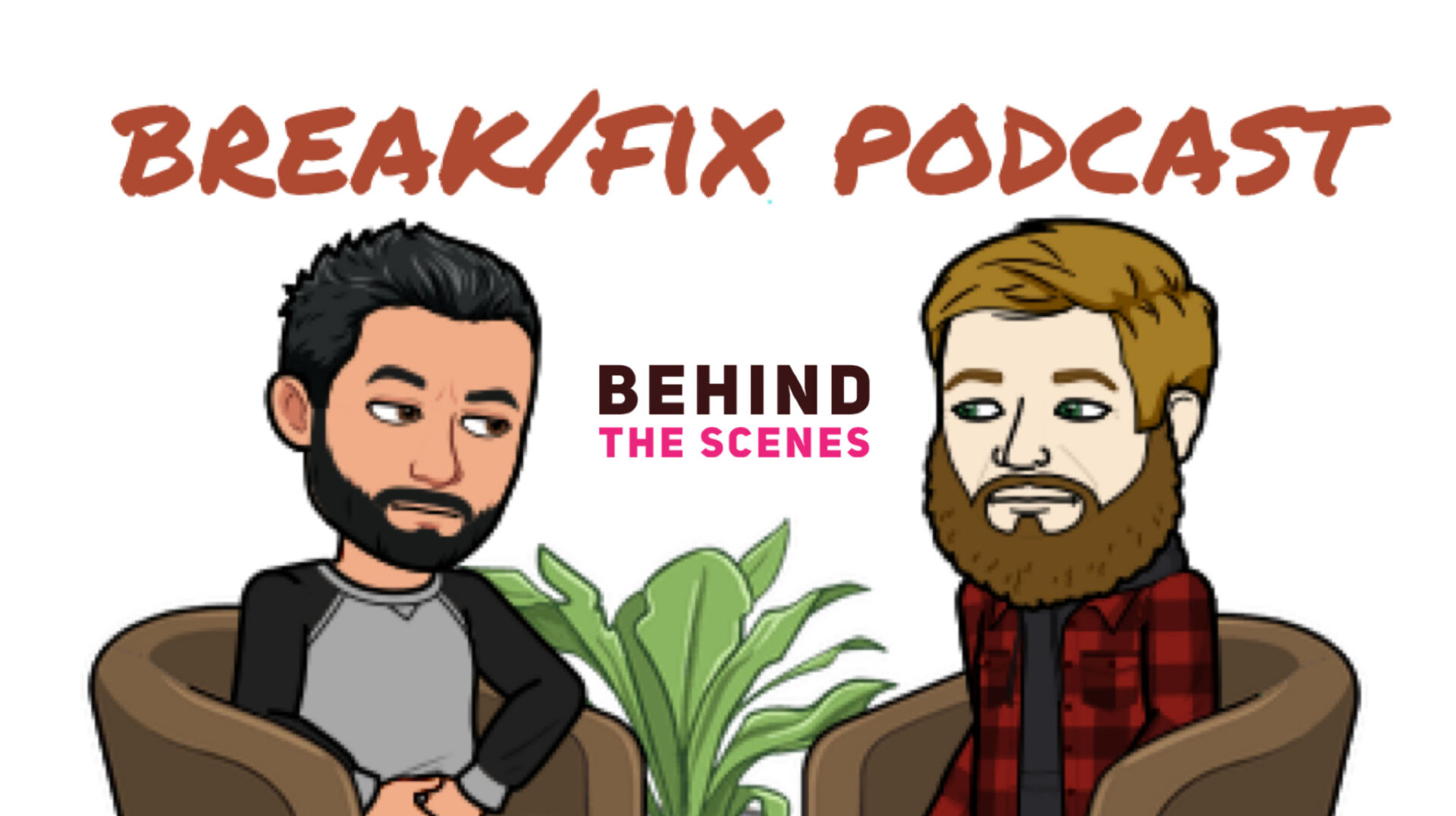
Consider becoming a GTM Patreon Supporter and get behind the scenes content and schwag!
Do you like what you've seen, heard and read? - Don't forget, GTM is fueled by volunteers and remains a no-annual-fee organization, but we still need help to pay to keep the lights on... For as little as $2.50/month you can help us keep the momentum going so we can continue to record, write, edit and broadcast your favorite content. Support GTM today! or make a One Time Donation.

If you enjoyed this episode, please go to Apple Podcasts and leave us a review. That would help us beat the algorithms and help spread the enthusiasm to others by way of Break/Fix and GTM. Subscribe to Break/Fix using your favorite Podcast App:
Boulder Campervans is a completely custom, highly detailed camper van conversion company proudly based in Boulder, Colorado since 2016. If you’re interested in learning more about how to convert your van, and take #vanlife to the next level, be sure to check out their website bouldercampervans.com or follow them on social @bouldercampervans on IG and FB, and some awesome videos over on their YT channel. ADVENTURE AWAITS!
Limitless combinations with the help of CAD!
If you’re looking to build a fully custom van conversion, Boulder Camper Vans has something for you! From fabric color, exterior features, and countertops, to flooring, windows, and cabinetry, our custom camper van builds allow you to tailor your van to your wants and needs.
There are nearly limitless combinations during the design phase because the team at Boulder Camper Vans use advanced technologies like CAD (Computer Aided Design) to make sure everything you may want, need or desire can be accommodated by the van.


